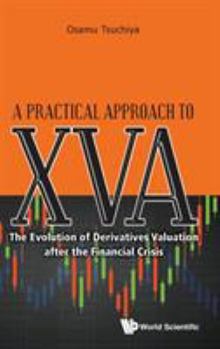Practical Approach to Xva, A: The Evolution of Derivatives Valuation After the Financial Crisis
The 2008 financial crisis shook the financial derivatives market to its core, revealing a failure to fully price the cost of doing business then. As a response to this, and to cope with regulatory demands for massively increased capital and other measures with funding cost, the pre-2008 concept of Credit Valuation Adjustment (CVA) has evolved into the far more complex hybrid Cross Valuation Adjustment (XVA).This book presents a clear and concise framework and provides key considerations for the computation of myriad adjustments to the price of financial derivatives, to fully reflect costs. XVA has been of great interest recently due to heavy funding costs (FVA), initial margin (MVA) and capital requirements (KVA) required to sustain a derivatives business since 2008, in addition to the traditional concepts of cost from counterparty default or credit deterioration (CVA), and its mirror image - the cost of one own's default (DVA).The book takes a practitioner's perspective on the above concepts, and then provides a framework to implement such adjustments in practice. Models are presented too, taking note of what is computationally feasible in light of portfolios typical of investment banks, and the different instruments associated with these portfolios.
Format:Hardcover
Language:English
ISBN:9813272732
ISBN13:9789813272736
Release Date:May 2019
Publisher:World Scientific Publishing Company
Length:340 Pages
Weight:1.37 lbs.
Dimensions:0.8" x 6.0" x 9.0"
Customer Reviews
0 rating





